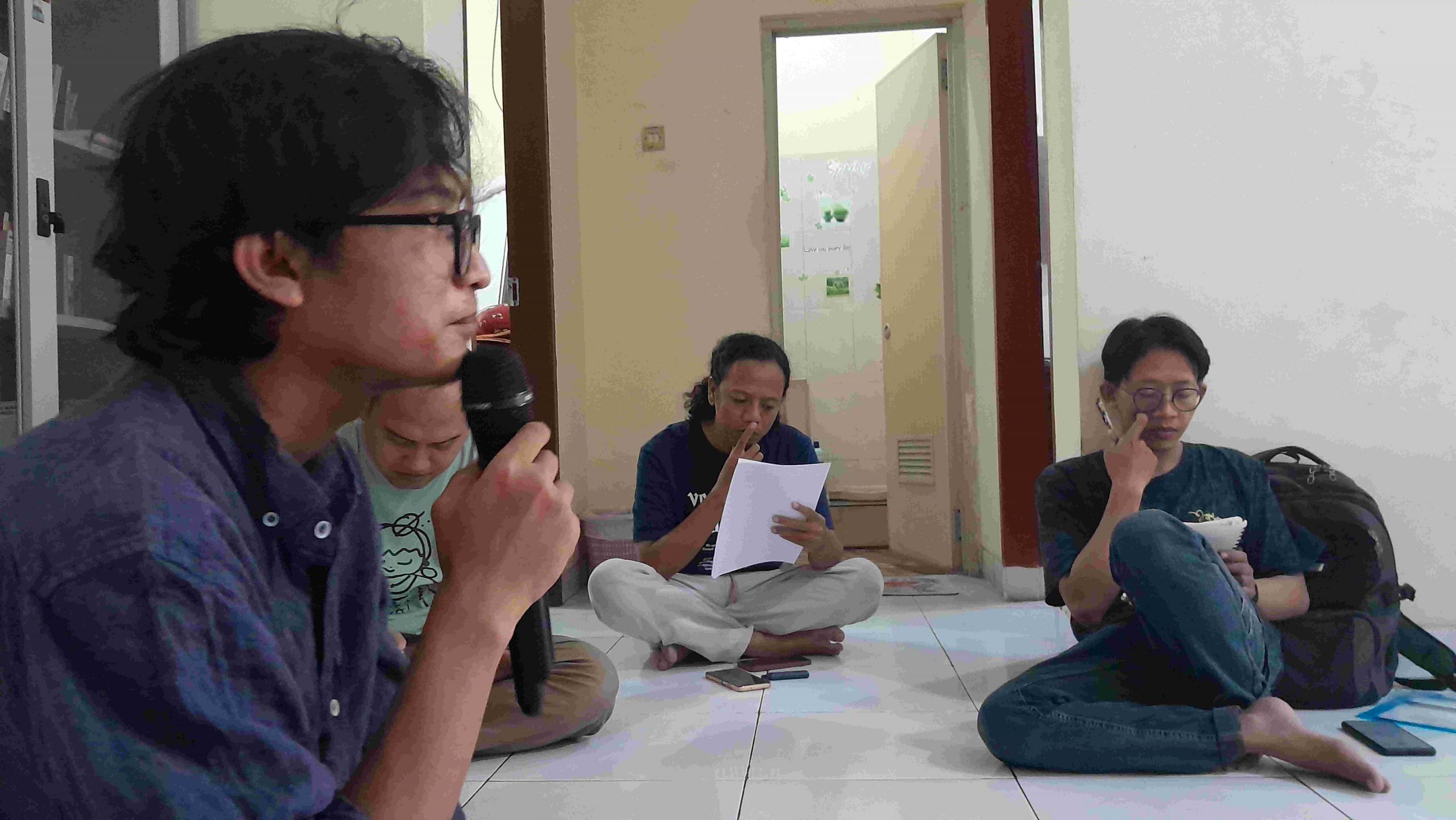Umah Ramah once again held a monthly thematic Keprapag Maskulinitas discussion at the Umah Ramah office, Bumi Linggahara IV Housing Complex, No. B14, Brigjend Dharsono Street, Kertawinangun, Kedawung District, Cirebon Regency on Thursday (08/29).
This fifth series of discussions was sparked by stories of personal experiences and reflections by Ahmad Khasan Basri, about how masculinity hegemonizes his life, his immediate environment, and society.
Khasan was accompanied by Ahmad Hadid as the discussion facilitator, and was listened to and responded to by young people who attended from Cirebon City and Regency. In contrast to past Keprapag Maskulinitas discussions, there were more men (7 persons) than women (3 persons) among the young attendees this time.
To start the discussion, the moderator introduced the meaning of ‘keprapag’, which is being possessed by something invisible. In this instance, it’s masculinity as an abstract idea shaped by an individual’s birth circumstances. Every man is bound and embodied by the standard of masculinity, which is derived from patriarchal conventions that persist to this day.
Khasan thought back to how he and his older sister had always clearly distinguished between their jobs in the home and in public life.
“Boys spend more time outside the home than girls. Before heading out to play, girls had to complete housework, which includes cooking, cleaning, sweeping, and other tasks. Girls have less time to play. Boys, on the other hand, can play and return home at any moment without being burdened with chores at home.”
The source person observed that this division of responsibilities was also reinforced through passages in primary school textbooks.
When he was a teenager and puberty started to show symptoms, he thought that the adults in his life did not provide him enough explanations for this experience. What came out was a limited range of comments, such as “it’s a sign that you have reached puberty; your sins now are your own responsibility.” The signs that he himself did not know the names of, appeared as anxiety, questions, and curiosity.
Due to his lack of awareness, he was exposed to false information—such as pornographic videos—through his curiosity. Men learn a lot from this, says Khasan. “Pornographic films shape men’s perceptions of women’s bodies. ‘Beauty’ standards and men’s relationship with other bodies.”
This Brebes young man laments men’s extremely restricted access to sexuality education. Beginning with the family, formal schooling, and community. The gender discussions he has participated in have mostly focused on women’s issues, with little attention paid to how masculine ideals shape men.
“I frequently felt cornered during those discussions. Therefore, it is crucial to keep having learning spaces like this one and having conversations about sexuality that include men and address how their surroundings influence them. Because we can’t find it anywhere else.”
Despite the lack of sexual education for men and the negative influence of pornographic videos, Khasan believes that awareness to conduct a self-analysis in the context of the closest living space is the starting point. The starting point toward improving relationships with oneself and others. As a man, he hopes that with this awareness he may keep learning how to interact with the women in his life—his mother, sister, and partner—in a healthier way.
A thorough question and answer session followed the discussion, covering a wide range of topics including the ever-evolving standards of beauty for men’s and women’s bodies; the massive pornographic film industry, which is surrounded by many interests that prevent its participants—especially women—from feeling objectified and even reap huge profits; and the phenomenon of same-sex sexual violence that occur in closed communities like pesantren, boarding schools, and military barracks. []
This article was translated by Napol Riel.
